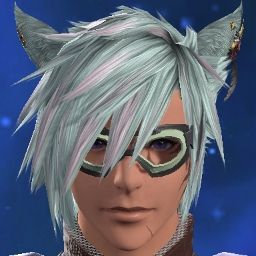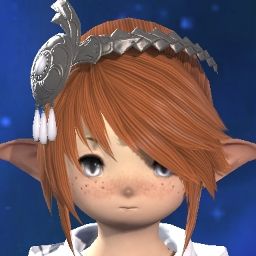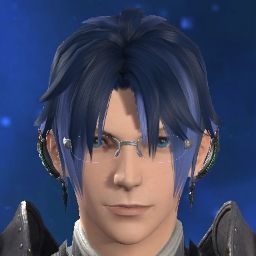Since the only response I've had to my question on what actually would make a job complex is a sarcastic response, I think it is safe to say noone really knows what complexity is. The closest response I have got was in another topic, where the question I asked was slightly different. That question was on job difficulty and the only response I got was having multiple DoTs with different timings. Whilst this might seem 'difficult' at first, you will soon get used to when you refresh your DoTs based on instinct and also where you are in your rotation.
Which brings home the point. You cannot make something complex that stays complex once you master it. You can make a system where the resources you have form a web in how they interact, but there will still be one way that it seems to flow the best. Once you have this, after some practice, the underlying web becomes a non issue and intuition takes over. The complexity has now seemingly been taken out of the job.
This is why I ask, what actually counts as complexity, what makes a job complex and most importantly, why would your 'complexity' stay complex even after mastery?
-
05-25-2024 07:42 PM #31(3)
-
05-25-2024 07:50 PM #32Player

- Join Date
- Aug 2021
- Location
- Gridania
- Posts
- 6,976
- Character
- Andreas Cestelle
- World
- Jenova
- Main Class
- Scholar Lv 100
You can’t really take the argument “once you get good everything is easy” because it’s a circular argument you can apply to the reverse as well
“What’s the point in complex encounters in which once you master them instinct takes over”
The sarcastic example of old SCH (I’m assuming that’s what you meant with multiple DOT’s on different timers) is more complex because there is more fail states and more moving parts, this can be applied to all content, not just savage
As to your wider question complexity is borne of moving parts, punishing fail states and forced adaptation to the design of the encounter(9)
-
05-25-2024 08:18 PM #33Player

- Join Date
- Aug 2017
- Location
- Limsa Lominsa
- Posts
- 2,045
- Character
- J'thaldi Rhid
- World
- Mateus
- Main Class
- Machinist Lv 100
I find it extremely strange how people can spit on job complexity, calling it nothing but memorisation once you figure it out. Yet they also have nothing but praise for complex fights, even though the same thing applies, it's also nothing but memorisation, no?
As for job complexity, no, I'm not looking for something that's eternally complex, because that's not feasible. What I'm looking for is something complex to master that is also consistently engaging. A small example of an engaging mechanic would be RDM, the engagement comes from watching your Fleche/Contre Sixte timers and deciding whether or not you have to use Acceleration to prevent cooldown drifting at that moment. Reacting to RNG is also something consistently engaging.
Really, anything that can't be played entirely by a macro would be going in the right direction.(10)
-
05-25-2024 08:48 PM #34
It isn't circular reasoning though as there is justification for me saying it. You start bad with no knowledge, you gain knowledge and practice, you get better at it and things become easier. So, you get better, things become easier. This can be applied to basically every aspect of live so it shouldn't be controversial.
If this was meant to be the reverse of what I said, then it failed. The reverse of what I said would be the worse you are, the harder things will be. Which, again, shouldn't be a controversial statement.“What’s the point in complex encounters in which once you master them instinct takes over”
The mistake here is then that you have said fight complexity is the reverse of job complexity, which it isn't. How a fight plays out has nothing to do with job actions. They are however linked by how they interact with each other. However, it isn't a direct correlation.
I will provide a link to the exact post I was talking about, however, just like my question in this topic, it was just a general question not directed at any job in particular, but as a concept as a whole. There was no sarcasm against Scholar as I never named a job directly, I never even hinted at a job directly, so you just inserted your own opinion on that matter.The sarcastic example of old SCH (I’m assuming that’s what you meant with multiple DOT’s on different timers) is more complex because there is more fail states and more moving parts, this can be applied to all content, not just savage
As to your wider question complexity is borne of moving parts, punishing fail states and forced adaptation to the design of the encounter
As for the rest, 'moving parts', I already addressed, once you know how the parts move, the complexity fades. 'Punishing fail states', is complexity now defined as how many times you can fail to do your job, or do something out of order? Is me failing to do 123 occasionally part of the 'complexity' because that is a fail state? How about Monk using Forbidden Chakra at max Chakra and potentially wasting chakra, does the fact Brotherhood can provide a ton of Chakra, leading to overcap and thereby wasting the resource for something out of your control count as complexity? You have still failed to not overcap your resources after all. Whilst these are ridiculous examples, they do highlight that making broad generalisations doesn't help the conversation.
Now, we get into the interesting part. 'Forced adaption to the design of the encounter'. Yes. This I do agree with. Having to change your rotation to output the most damage in an encounter should be something to consider. Whether it is forcing melee out of melee range, having a phase change during 'burst' so you potentially waste it etc. Unfortunately, a lot of people that say they want more complexity from jobs, dismiss the encounter in the equation. It is the encounter and how the jobs interact with that encounter, that makes your job fun, not just the jobs themselves.(2)
-
05-25-2024 08:51 PM #35Player

- Join Date
- Nov 2015
- Posts
- 3,205
- Character
- Bastilaa Shan
- World
- Excalibur
- Main Class
- Blue Mage Lv 80
All the fights are heavily scripted. If fights in each phase had 5+ variations in what the AI(and if it's scripted AI is doing very little decision making anyway) decides to do then I might consider fights complex. Only thing that realistically makes fights hard is failing a mechanic and you get one shot(artificial difficulty) because of it which then leads to a party wipe if you can't meet a DPS check. And honestly all of the big fights in the game should have independent Tank, Healer, and DPS checks on top of party coordinated checks(you know like stack markers, party splits and the enrage where boss wipes raid if you don't kill the last 5% HP in time).
Job classes should have their each unique playstyle that separates themselves from everyone else instead of heading down the DPS Warrior Fell Cleave 2 minute meta rabbit hole where the only thing that separates them is aesthetics and appearance.
PvP does things right where jobs have a clear identity alongside a personal Limit Break that they build gauge for by doing stuff or overtime in combat. Give classes stuff that says "Only a BLM can do this and only a NIN can do that" would go a long way.
All the jobs in the game are easy to learn hard to master due to the necessity for everything to be accessible to everyone of all skill levels starting from rock bottom.
Only jobs I'd consider difficult or is the right word stressful is Healers. But it's not because of fight design. It's due to bad players causing the stress if they are bad at the game or just new to playing.
Until fight design starts off with easy stuff in ARR and then moves onto more complex things like stack markers and then even later on gives debuffs for players to keep track of it's going to remain faceroll.
And the only reason endgame fights were even hard was the gear they gave you kept you undergeared for the content on purpose. And once you get into what gear actually does it's actually pretty worthless in hindsight and you never feel stronger.
It's why your defense and DPS/HPS gets reset at the start of a new expansion. Feels awful half of the time.
Not really sure what the answer is. It amazes me that FFXI has great job complexity and identity and a subjob system that amplifies the main job you play but in XIV it is so cookie cutter in comparison.
But I think XIV has done things a certain way for so long it does not know how to do it any other way. It is a worn leather shoe that is rough and rigid and you've just grown accustomed to wearing it you can't imagine wearing anything else.(7)
-
05-25-2024 09:01 PM #36Player

- Join Date
- Aug 2020
- Posts
- 2,405
- Character
- Lorelai Oshidari
- World
- Maduin
- Main Class
- Dancer Lv 100
Unsure if related but I watched a video recently on a study: https://quanticfoundry.com/2024/05/21/strategy-decline/ (Title: Gamers Have Become Less Interested in Strategic Thinking and Planning)
What it basically says is that over the last 9 or more years, the appeal of strategy based games/critical thinking/planning/etc. has decreased more than any of the other 11 motivations they tested (Destruction, Excitement, Competition, Community, Challenge, Completion, Power, Fantasy, Story, Design, Discovery).
A quote: "When we looked for long-term trends across the 12 motivations, we found that many motivations were stable or experienced minor deviations over the past 9 years. Strategy was the clear exception; it had substantially declined over the past 9 years and the magnitude of this change was more than twice the size of the next largest change."
It is also something that has been on a downward trend before Covid, the study shows that this has been occurring since as early as June 2015 but suggests it could even be earlier.
They end with the following:
"Even if the underlying cause(s) cannot be identified, it’s clear that gamers have become less interested in strategic thinking over the past 9 years. It implies that gamers are now more easily cognitively overloaded when they play games and are more likely to avoid strategic complexity. This has implications for game design and marketing. Overall, gamers now prefer shorter time horizons to plan for (i.e., the number of steps and branching outcomes they have to think through) and less complex decisions that rely on fewer parameters to consider."
---------
Basically, complexity isn't what gamers want anymore, at least the 1.7m+ that they tested over the past 9 years. It makes sense to me more now why the game has been "dumbing itself down", because ultimately the people who want complexity are now becoming the minority.(0)Last edited by LianaThorne; 05-25-2024 at 09:04 PM.
-
05-25-2024 09:15 PM #37Player

- Join Date
- Aug 2021
- Location
- Gridania
- Posts
- 6,976
- Character
- Andreas Cestelle
- World
- Jenova
- Main Class
- Scholar Lv 100
You yourself said you were offered a sarcastic answer. I assumed you were discussing SCH because it was a multiple dot job, I didn’t provide input on that you are the one who said you were provided a sarcastic answer
And when I said reverse I didn’t mean reverse statement I meant the reverse argument. The idea that complexity exists on a balance between all in the job and all in the encounter. You are arguing that complexity comes from the encounter as the job becomes instinct, I said your own logic of instinct taking over can be applied to the reverse argument that instinct can take over on the encounter once you have done it as well. Therefore the statement “once you get good things become easier” becomes a totally moot statement because it can be used to argue both sides of a diametrically opposed argument
Difficulty has to come from both sides or you wind up on the healer situation. If every job pressed 11111111111 then you could make most savages as hard mechanically as TOP because there is no job difficulty. Encounters should facilitate differences in job complexity to lead to differing results. The best example of this is T7 (if anyone even remembers T8 at this point). The fight isn’t excessively mechanically challenging but it does challenge your kit and force you to solve it different ways which plays into what each job offered at the time. Your rotation wasn’t static and played into each other
There is also the question of casual content that must be included in the discussion as pushing encounter difficulty above all else makes casual content beige as hell for any job(2)Last edited by Supersnow845; 05-25-2024 at 09:23 PM.
-
05-25-2024 09:32 PM #38Player

- Join Date
- Aug 2020
- Posts
- 2,405
- Character
- Lorelai Oshidari
- World
- Maduin
- Main Class
- Dancer Lv 100
Perhaps that's why, maybe they wanted to get away from their identity in FFXI and create something more appealing to a wider audience. The reality is, not everyone wants to sit and do mental math over what attack is better in each situation or consider cooldown drifting and things like that. Some people want to just sit down, push buttons and complete content quickly without too much thought behind it. The study I linked above basically shows that strategy/critical thinking in video games is on a downward trend. We also had sub jobs here originally but they were removed, most likely at the request of the player base.
I think times are just changing and Square is trying to future-proof for the majority and the incoming generations who are being raised on short-form media/TikTok (media that doesn't require much brain power to comprehend). Those who want something complex just might not be their target audience anymore.(1)
-
05-25-2024 09:38 PM #39
Obviously there's a 'puzzle' aspect about jobs. You need to figure out mechanics, which are superficially complex even nowadays. Most jobs seems unintuitive because the game does a really bad job with its tooltips, but with a few days of practice one might get it. Beyond that is what we don't have, which is engagement as job complexity.
Mechanics who won't allow us to run on 'auto-piilot' like non-rotational procs that would feel like 'bonus' if properly used, or finding good moments to use your resources based on certain conditions - which we defnitely don't have with the 2min meta nor the encounter design gives us many of those opportunities (eg. priority adds that need down ASAP), dot management with dots that interact with other parts of the kit, proper pet mechanics of micro-managing, niche actions that would assign sub-roles to some people (eg. someone that isn't a tank who can kite an add from point a to point b).
Anyway, job complexity isn't really a thing on its own. The encounter also need to accomodate it, and currently XIV's encounter design is extremely cemented to have that. I'm hopeful that since they claimed they'll be making encounters more unique, in DT, that will pave the way for a more interesting job design in 8.0, which based on what they said, I suspect it's the plan.
Of course, I'm not holding my breath for anything - I only believe when I see it.(1)
-
05-25-2024 09:38 PM #40Player

- Join Date
- Aug 2013
- Location
- In the right-hand attic
- Posts
- 4,349
- Character
- Karuru Karu
- World
- Shiva
- Main Class
- Fisher Lv 100
Jobs are complex if you have to make decisions. When you have to adapt your rotation to the encounter. When you can fail at the job.
BLM has a simple rotation, but you constantly have to adapt to the encounter. Old DRK was easy enough to play but you constantly had to keep your mana in balance, decide how to spend it, not running dry and not overcapping. You had to decide what to do with the old AST cards when you were drawing something unfavourable.
Everything is so streamlined now that you can not fail anymore (Huton becomes a trait) and every inconvenience gets removed (no RNG AST cards anymore). The game plays itself now, you are just pressing the buttons.(17)It’s a good thing not to answer your enemies. I scarcely ever do. Perhaps Emily is more like me than I am like myself. Perhaps she would rather not answer her friends, even. She keeps it all in her heart.




 Reply With Quote
Reply With Quote





